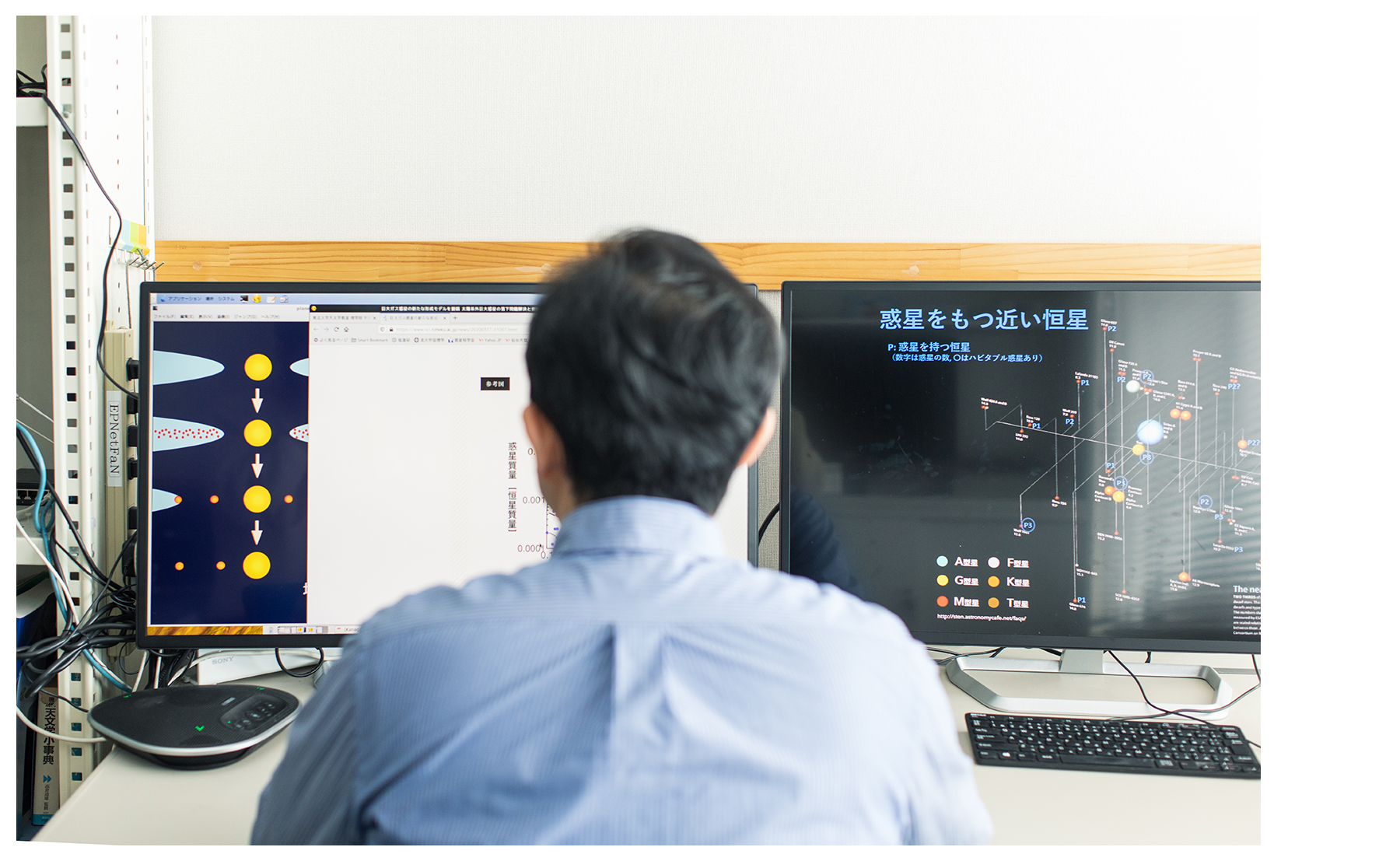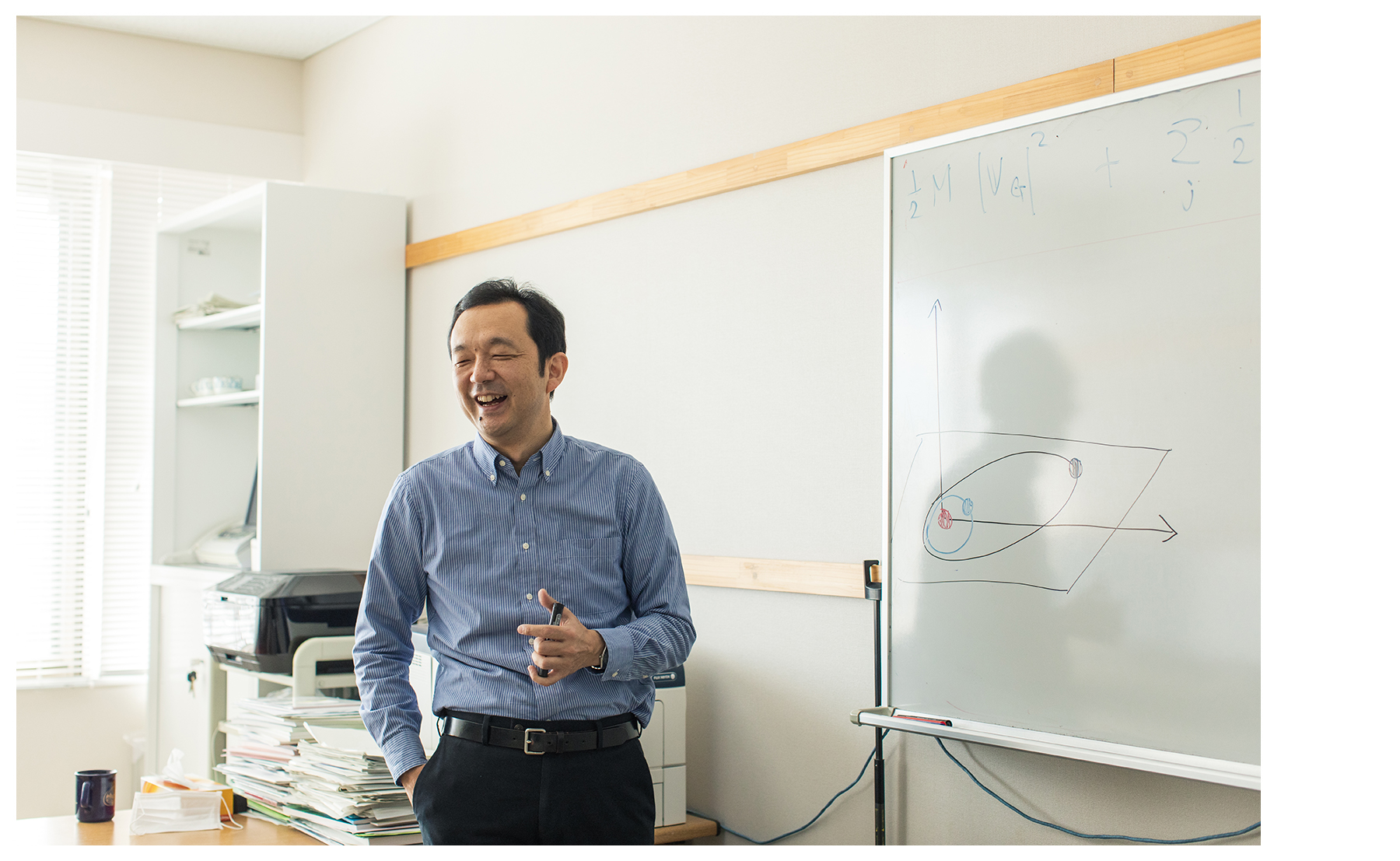I am studying exoplanets. In addition to our solar system, many planets orbiting other stars have been discovered, which are called exoplanets. More than four thousand exoplanets have been discovered so far. There are 100 billion stars in our galaxy, and we estimate that 60-70% of them have one planet, at least. With such a huge number of exoplanets, there are expected to be a number of exoplanets that are suitable for living. And we believe that there must be some other planets besides the Earth that are actually nurturing life. The study of exoplanets is such an exciting discipline and a field of astronomy that are familiar to us.
Exoplanets have been found to be very different from our solar system. The first discovered exoplanet is a giant planet such as Jupiter which orbits very close to its star. Many giant planets, which orbit in long thin ellipses such as comets, have also been discovered. Recently, on the other hand, there have been many reports of the discovery of Earth-sized planets with a temperature environment like that of the Earth. I am theoretically studying the origin of exoplanets and their formation processes, using computer simulations. In fact, the formation process of our solar system is still a mystery, and I am working to construct a unified theory that explains how the solar system and various exoplanets were created and divided.
When I was in my third year of university, a new professor who studied planet formation theory arrived at my university. I had a slight interest in astronomy, and I thought that planets might be astronomical as well, so I joined his laboratory in my fourth year. Looking back now, I started with a light heart. At that time, there were not many researchers in this field, but the first exoplanet was discovered in 1995, and since then, research on planet formation has become popular and very active. I think I was very lucky to have started my research before that time. New exoplanets were being discovered one after another, and astronomical observations of the birth place of planets were being made commonly. Thanks to these new exciting discoveries, I am still able to continue my research on planet formation with a fresh mind.
The moment when we find a beautiful theoretical model that can explain the observational facts of the planets in our solar system, and the exoplanets, that is the real thrill of being a researcher in this field. On the other hand, we are often overwhelmed by new observations that cannot be explained by our current theory. However, this becomes the goal of a new challenge, and the research continues. I would like to encourage young students to participate in this challenge and experience the real thrill of research. It may sound like a lot of work, but you may want to start out with a light heart like I did.





